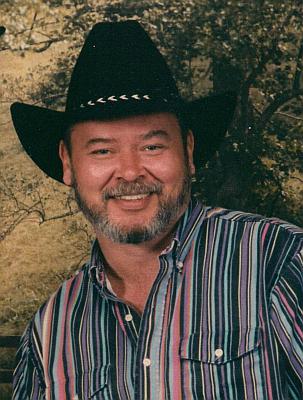
Les Krambeal
November 17, 1950 - March 15, 2013
First attended a gay rodeo in 1985
Involved in gay rodeo through 1988
Inducted 2015
Read and see an oral history of Les on the Arizona Queer Archives recorded April 10, 2010. (Video of the interview is at the bottom of that page)
Les Krambeal was born Richard Leslie Price on November 17, 1950 at The Army Hospital in Seattle, Washington. In 1953 his parents divorced and Les and his two sisters went to live with his grandparents in Eagle Point, Oregon. When his mother remarried in 1954, she regained custody of the children, and Les was renamed Leo Leslie Krambeal. His mother and step-father were given 10 acres of the grandfather's ranch, and that is where Les was raised.
While growing up, Les' primary interests were his horses and 4-H. His grandmother nurtured his love of horses, and he began competing in horse shows at the age of three. Over the years, he became both a local and state champion. In the summer, Les would go for long trail rides, and he also participated in many cattle drives riding his favorite horse, Penny. 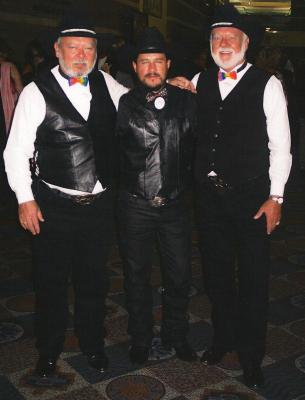 His grandparents built a rodeo arena on their property, and Les began competing in rodeo events when he was in high school. His favorite event was calf roping, but he competed in almost all of the rodeo events during those years. At the age of 16 he attended the National 4-H Congress in Chicago, representing the state of Oregon.
His grandparents built a rodeo arena on their property, and Les began competing in rodeo events when he was in high school. His favorite event was calf roping, but he competed in almost all of the rodeo events during those years. At the age of 16 he attended the National 4-H Congress in Chicago, representing the state of Oregon.
But horses and rodeo weren't the only things Les enjoyed. His step-father was the local band director, so Les also received extensive training in music. In high school he discovered his passion for cheerleading, and he defied all of the taboos of the time and joined the Varsity Cheerleading Squad. After high school, Les attended Willamette University in Salem, Oregon, where his interest in music diminished while his cheerleading remained in full swing. After three years of college, Les decided to take a semester off "to find himself." But it was "Uncle Sam" who found him, as Les was promptly drafted into the U.S. Army for three years. He served a 15 month tour in Vietnam, where his unit was extensively exposed to the herbicide and defoliant Agent Orange.
After the Army, Les was a long haul truck driver for a short time before moving to Ohio, where he was the secretary in a doctor's office for a few years. While there he was selected as the "Secretary of the Year"  for the state of Ohio. In the late 70's Les returned to Oregon to help care for his grandfather who had a stroke. He also found work as a secretary, and yes, he was selected to be the "Secretary of the Year" for Oregon!
for the state of Ohio. In the late 70's Les returned to Oregon to help care for his grandfather who had a stroke. He also found work as a secretary, and yes, he was selected to be the "Secretary of the Year" for Oregon!
About 1983, Les met Walt Rupprecht, and he soon moved to live with him on his Arabian horse ranch near Jones, Oklahoma. Les managed Walter's new country western gay bar in Oklahoma City named "The Bunkhouse". In February, 1985, Les was attending an Arabian horse show in Phoenix, where he met John King (also in IGRA Hall of Fame). John told Les all about the gay rodeos that were happening around the country, and about the formation of the International Gay Rodeo Association (IGRA) that would be taking place in September. Les was determined that Oklahoma needed to have a gay rodeo, so when he returned home he immediately helped with founding the Oklahoma Gay Rodeo Association (OGRA). When it came time for the first IGRA Convention in September, Les was there in Denver with a full delegation ready to be seated as the fifth Association to become a part of the IGRA.
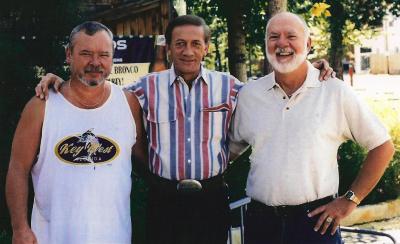
His leadership qualities soon became apparent, and after Wayne Jakino (also in IGRA Hall of Fame) completed his two years as the Founding President of IGRA, Les was elected as the second President and served for two years. During his first term he urged the IGRA Board to move more towards the use of computers, and helped set the stage to computerize the rodeo results. While Les was President of IGRA, his personal life was changing. He broke up with Walt, and moved to Reno, Nevada. In partnership with Al Bell (also in IGRA Hall of Fame), owner of "Floyd's Bar" in Long Beach, California, Les and Al opened a new country western bar named "Floyd's - Reno". When these two IGRA visionaries made a presentation to return gay rodeo to its first home, the 1987 Convention Delegates could not resist. The 1988 IGRA Finals Rodeo was scheduled for Reno, Nevada.
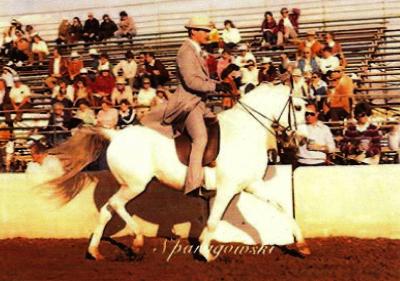
Les has been remembered by many early IGRA participants only for his role as Rodeo Director for the Second Annual IGRA Finals Rodeo - "Reno '88"; the rodeo that did not happen! Plans were made early on to hold the rodeo at the Washoe County Fairgrounds. For several years that had been the location for the National Reno Gay Rodeo, which was the first annual gay rodeo held from 1976 - 1984. Unfortunately, AIDS was still a very misunderstood disease that made many people uneasy, and there was also a great deal of homophobia in conservative Nevada. A small, but vocal group, put pressure on the Fair Board and the contract was not signed. The rodeo was then scheduled for the Lawler Events Center, but the contract was later canceled and court action to force the center to perform was not successful.
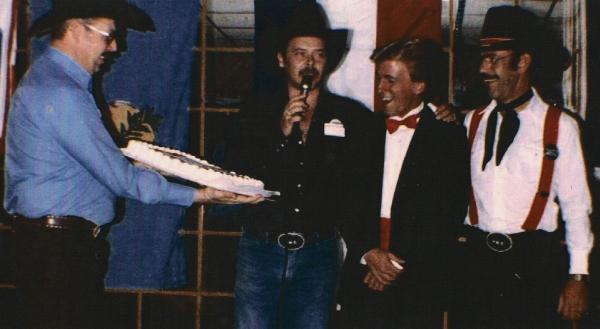
A contract with a private ranch near Fallon, Nevada, sixty miles east of Reno, was made void when the local homophobic District Attorney filed an injunction two days before the rodeo in order to stop the event. Several confrontations took place at the private ranch between the Sheriff and the IGRA horse contestants wanting to get to their horses. Two days in local court, as well as a trip to the Nevada Supreme Court, failed to overturn the injunction. Many people canceled their trips when word got out about the possibility that the rodeo would not happen. However, more than 100 contestants and 600 spectators who did arrive, found themselves only able to attend the evening parties held in Reno. IGRA officers referred to the bylaws and awarded two sets of Event Championship buckles and All-Around Champion buckles to the top point contestants throughout the year from each of the two rodeo divisions.
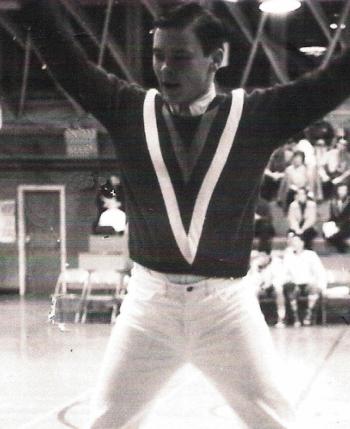
During his short time in Reno, Les had already developed a relationship with many politicians, and he honestly believed that IGRA's powerful message and purpose would win over those homophobic forces that were marshaled against the rodeo. He was criticized by some for not facing the reality and canceling the rodeo sooner. In hindsight, Les did what any other committed country boy would do. Armed with the knowledge that he was "right" and that "right" would prevail, he took it all the way to the limit. Les was not used to defeat, and when he heard about the confrontations that had happened in Fallon, it only made matters worse. The Finals Rodeo weekend was near the end of October, and his second term as President ended on October 31st. "Floyd's - Reno" was soon closed, and Les moved back to Oregon.
Les found a job as a para-legal, and later managed a law firm in Medford, Oregon. He was eventually hired by the Jackson County legal department, and worked there until 2004.
In November, 1989, Les met his Life Partner, Gordon Owsley, and they soon bought a 3 acre farm near Medford where Les taught Gordon to love horses, especially Arabian horses. At the same time, Gordon was teaching Les about the fine art of entertaining. A couple of years later they bought a 10 acre farm with a bigger house, a bigger barn, and more horses. They continued breeding, raising, and showing Arabians. About 1996, Les and Gordon were both bucked off the same horse, so they decided to get out of the horse business before they were seriously injured. They sold the farm, horses, tack, truck and horse trailer, and bought a 7 acre property on the outskirts of Ashland, Oregon. They started improving this property, and eventually expanded the home from 1350 square feet to 4000 square feet. They added a pool, remodeled the barn, added landscaping, fencing, and began to PARTY!! They hosted many events in their home, including political events, LGBT events, weddings, anniversaries, and much more.
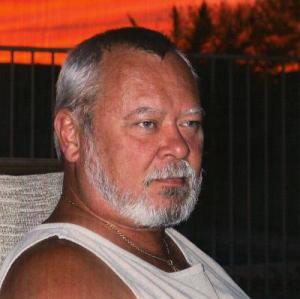
Les was on the Board of the International Arabian Horse Association, and was very active at the local level when living in Oregon. While in Ashland, Les was on the original board that started the "Abdill-Ellis LGBT Community Center", which was created after the murders of two women who were very active in the community. He was on the board of the Jackson County Human Rights Coalition; Chairman of the LGBT Political Caucus in Ashland; and was involved with the Rural Organizing Project in Oregon. Les started the Lambda Awards event in the Rouge Valley, which was an LGBT celebration of the participation and involvement in the community.
For some time, Les had wanted to live in a warmer climate. In 2004, he and Gordon sold their home in Ashland and bought a new home in Tucson, Arizona where they continued hosting events and parties. In 2005, Les and Gordon met Juan Gastelum, who soon joined the two of them as Life Partners. Les continued his paralegal career in Arizona, and was appointed to the Supreme Court Board which governed paralegals in the state. He served two terms as Chair of that Board.
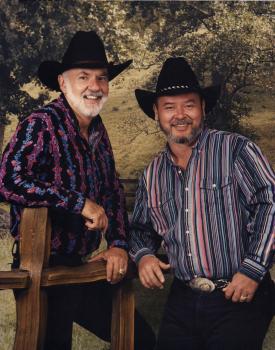
Soon after moving to Arizona, Les became involved with the Stonewall Democrats, which is the LGBT arm of the Democratic Party. He became Chairman of this group, and served for two years. Eventually, Les was elected to the National Board of the Stonewall Democrats, and traveled in that capacity across the United States. Les was also on the board of the LGBT Political Caucus in Tucson, and was appointed to be the liaison to the Tucson City Council regarding LGBT rights and responsibilities. Though he had not been very involved with gay rodeo since the 1988 IGRA Finals Rodeo in Reno, Les was instrumental with helping to start the Sonoran Rodeo Association which was formed on September 9, 2009.
In 2009, Les was diagnosed with a virulent, aggressive form of prostate cancer resulting from Agent Orange exposure in Vietnam. He had a prostatectomy, but the cancer had already spread and had metastasized to his spine and pelvis. He was put on several different therapies over four years to try and keep the cancer under control, but nothing worked. In December, 2012, Les went to the Hospice Center at the Veterans Administration Hospital in Tucson, where he died on March 15, 2013. Les is survived by his Life Partners, Gordon Owsley of 23 years, and Juan Gastelum of 7 years.